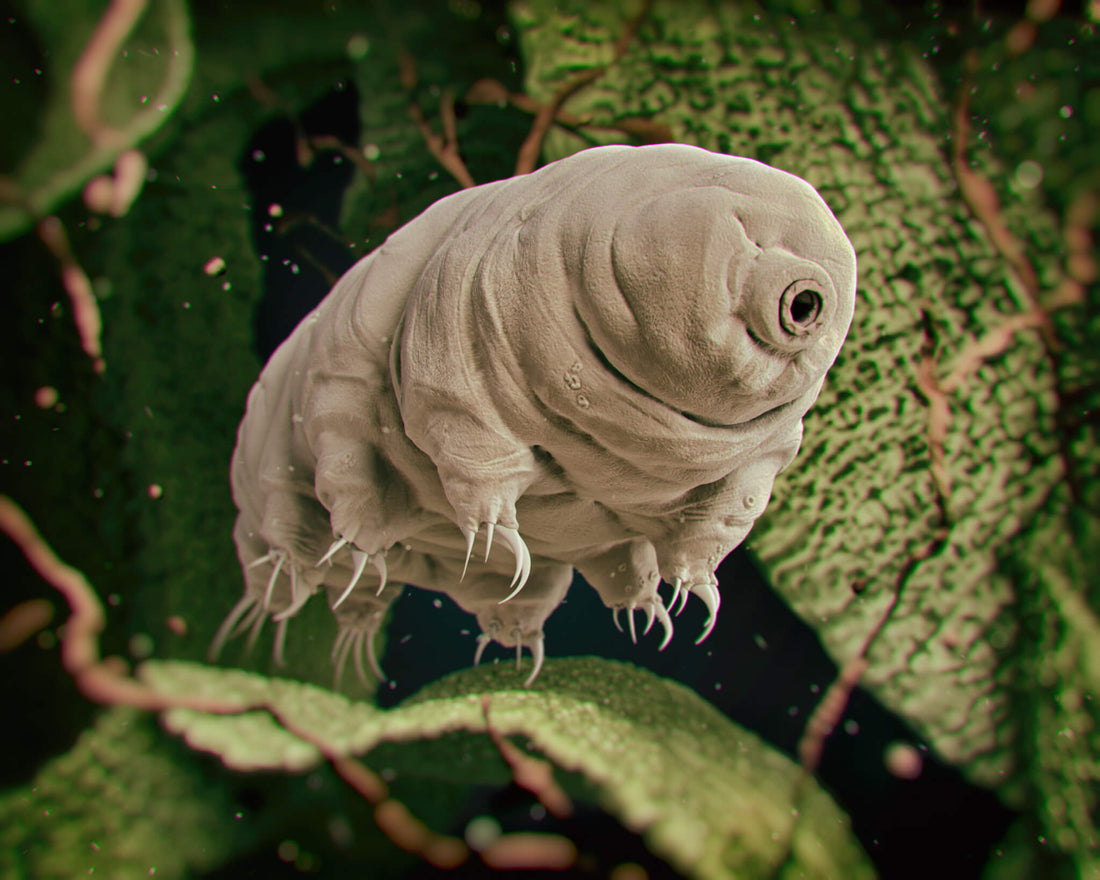
Scientists Injected Tardigrade Proteins into Human Cells
Share
Tardigrades, also known as water bears, are nature's endurance champions. They can survive extreme heat, cold, radiation, and even the vacuum of space. Scientists are now unlocking the secrets of their resilience, and it could have major implications for human health.
The Tardigrade's Secret Weapon: A Gel-like Defence
The key to a tardigrade's survival appears to lie in a protein called CAHS D. This protein has the remarkable ability to transform into a gel-like substance under stress. This gel protects the tardigrade's internal molecules from damage and prevents them from drying out.
A recent study by researchers at the University of Wyoming sheds new light on this process. They found that introducing CAHS D proteins into human cells mimicked the tardigrade's response. The human cells also entered a gel state and slowed down their metabolism, a state known as biostasis.
Biostasis: Potential Benefits for Human Health

This discovery has exciting potential for human health. Biostasis essentially puts the brakes on cellular processes, potentially slowing down aging and improving cell storage techniques.
Here are some potential applications:
Enhanced Organ Transplants: Preserving organs for longer periods before transplant could significantly increase the success rate of these life-saving procedures.
Combating Aging: If scientists can unlock the secrets of how tardigrade proteins regulate biostasis, they might be able to develop therapies to slow down human aging.
Improved Cell Therapies: Biostasis could play a crucial role in storing and transporting cells used in various cell-based therapies.
The Road Ahead: Untapping Tardigrade Resilience
While the initial results are promising, significant research is needed before these tardigrade-inspired techniques can be applied in human medicine. Scientists are actively exploring various avenues, such as investigating how tardigrade proteins activate during stress and deactivate when the threat subsides.
One thing is clear: tardigrades, these tiny marvels of nature, may hold the key to unlocking new frontiers in human health and longevity.
You’ve come this far…
Why not venture a little further into A.S.S. - our exclusive Australian Space Society.
And keep thrusting Australia into the deep unknown…
#Space_Aus




